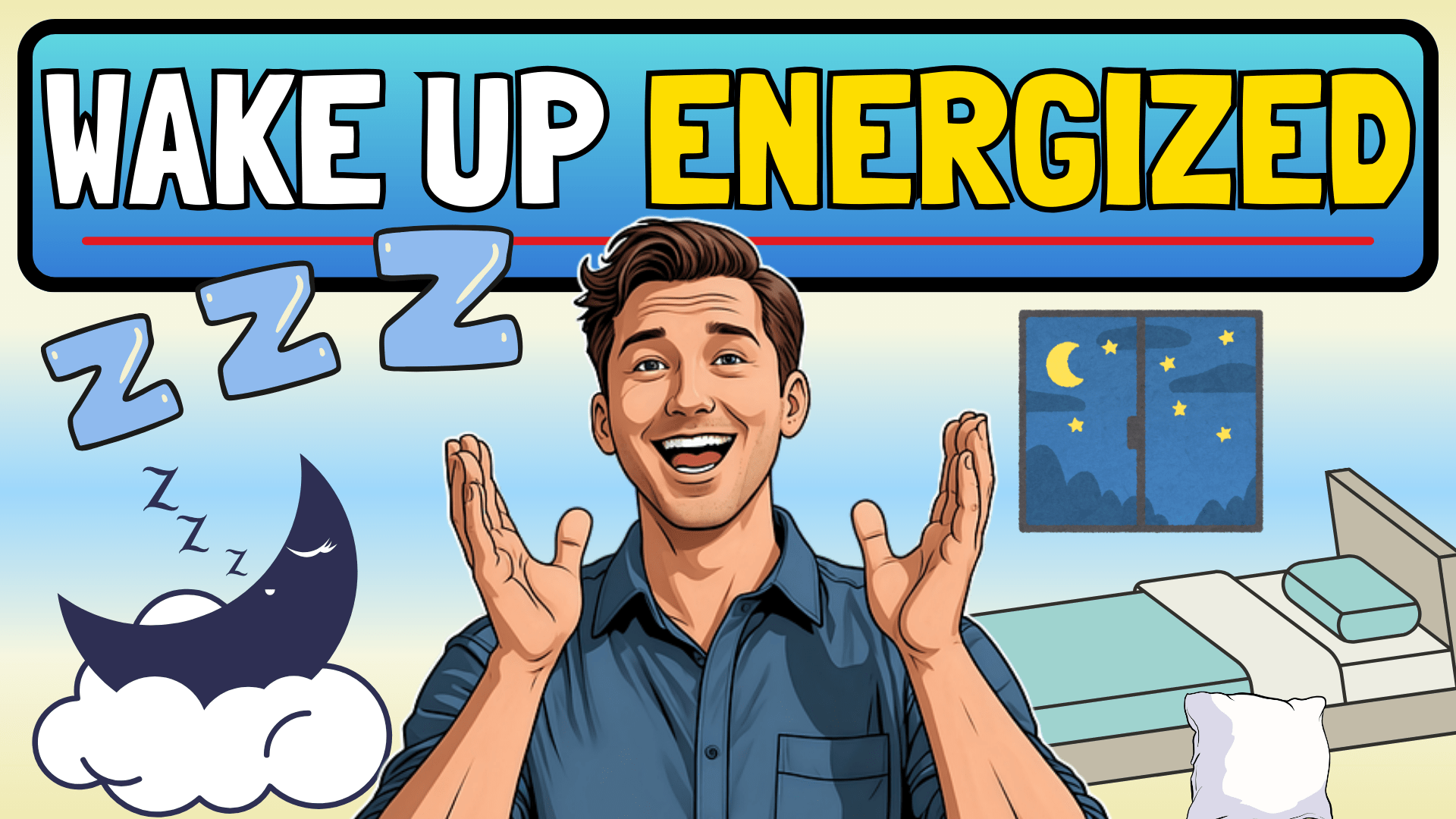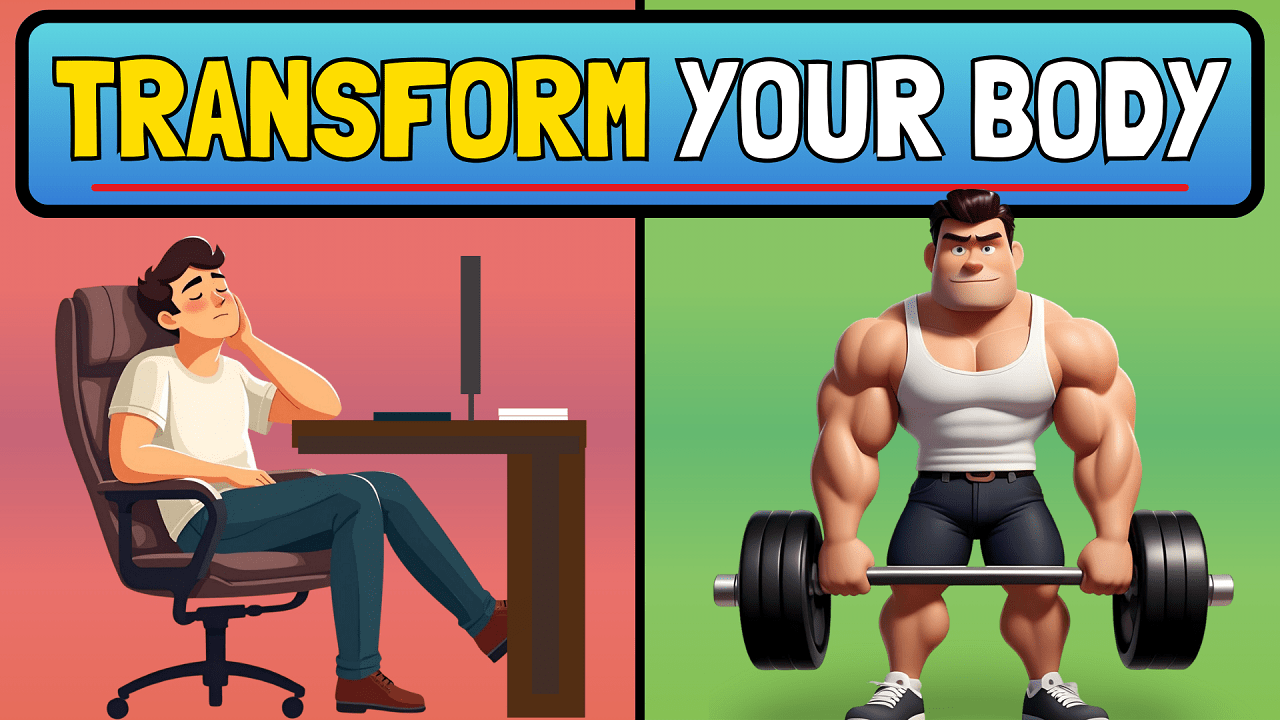“Don’t ask how people are doing, ask how they are sleeping. You’ll learn a lot more.”
This quote from Andrew Huberman perfectly sums up the importance of great sleep quality. Getting a good night’s sleep is just as vital to your health as maintaining a regular exercise routine and a balanced diet. But most of us don’t prioritise it as much as we should.
When we don’t get enough sleep, our mood takes a hit. We’re more likely to feel anxiety, depression, and become irritable.
After just a few weeks of insufficient sleep, we start to feel the negative effects on our thinking ability and our capacity to memorize information, making it harder to learn new things. Our thought patterns start to slow down and become less accurate. This lack of sleep also impacts our judgment. In fact, our decision-making capabilities suffer. We tend to focus more on the desired outcome rather than the consequences.
In this case, our self-control follows the same path. This is one of the reasons why not getting enough sleep leads to weight gain. Think about this: What sort of foods do you reach for when you are sleep deprived? Most likely, it won’t be the healthy type…
Among many other effects , insufficient sleep is also a risk factor for our heart health, immune health, testosterone, insulin and cortisol.
In short, the negative effects of regular bad sleep can be summarized in one sentence by Professor Matthew Walker :
“No aspect of our biology is left unscathed by sleep deprivation”
However, all is not lost!
Once you apply the habits mentioned in this video, Your sleep quality will improve and you will start to feel the benefits.
Sleep is vital for your mind and body. It helps to reorganize, restructure, and create neural connections in the brain. This helps us learn and leads to better problem-solving and decision-making skills.Getting enough sleep also restores the body, improves our energy levels and has a positive effect on our mood.
So without further ado, here are 6 simple habits for you to build, so that you can finally improve your sleep and wake up feeling rested.
Sleep schedule
It is now common knowledge that most humans need a minimum of 7 hours to be able to function effectively, but because we are different, some of us may need more, and in rare cases, some of us may need less.
Aiming for this amount of sleep is a good starting point. However, consistency and regularity will bring you to the finish line.
If your daily lifestyle allows it, go to sleep at the same time every night, and wake up at the same time every morning. Aim to do this on weekends too and during holidays to maximise the effects of your sleep schedule. Of course, this is easier said than done when you have children.
Choose a bed time when you normally feel tired, or set an alarm to wake up and then choose a bed time that allows you to sleep for at least 7 hours. After a while, it becomes easier to fall asleep quickly and to wake up on time in the morning.
Maintaining a regular sleep schedule strengthens your body’s natural sleep-wake cycle. By sticking to a consistent routine, you help align your circadian rhythm, which promotes improved sleep quality and overall well-being.
Daytime light exposure
Our circadian rhythm is an internal clock influenced by light and darkness, which is why you tend to feel sleepier as the sun sets and more alert when daylight returns in the morning.
Field experts, including Doctor Andrew Huberman, advise us to expose ourselves to sunlight as soon as we wake up, even if it is a little cloudy outside. The closer to the time you wake up, the better it is. Unfortunately, this is sometimes difficult and the ability to do so often depends on our location and wake up time. If necessary, and if possible, use a light therapy box that simulates sunshine.
Our circadian rhythm is regulated by light exposure, which is why getting enough of it improves our sleep quality. Whenever possible, spend more time outside when the sun is up, go for walks, take a break from work, and open your window blinds to let natural light come in. Of course, it goes without saying that you must not look directly at the sun, just let the natural light reach your eyes!
By prioritizing light exposure, you can foster a healthier circadian rhythm, fall asleep faster in the evenings, and enjoy more restful nights.
Optimize Your Sleep Environment
One key element for improving your sleep is to create an environment that fosters good quality rest. While it may help to get a new mattress, it just won’t be enough.
Our body temperature decreases before sleep, so aim to keep your bedroom cool, but not freezing, as this will help you settle more easily so that you fall asleep faster This is also why taking a warm shower or bath before going to bed is a science-supported way of improving sleep quality. The warm water will initially increase our body temperature, but once our body starts to cool down, it is much easier to fall into deep sleep.
As mentioned previously, light exposure has a major effect on our sleep quality. Reducing exposure to excess light before bedtime can support our body’s natural production of melatonin, the hormone responsible for promoting sleep. Melatonin release is triggered by darkness, signaling to your body that it’s time to rest. If it is suppressed, it is harder for us to feel sleepy and reduces our sleep quality, so prioritize keeping your bedroom as dark as possible.
A silent room is also essential for good quality rest.
Sounds can, and will, disrupt your sleep, even if they don’t wake you up, which is why a room optimized for silence is so important. Environmental noises can increase lighter sleep and will reduce deep sleep and REM sleep, which are essential for feeling refreshed. In fact, research suggests that our sensitivity to noise is increased at night due to our circadian rhythm. Nighttime noise may also raise stress hormones, such as cortisol, and increases heart rate and blood pressure.
To create a quieter sleep environment, try to eliminate or mask noises using tools like white noise machines, fans, or earplugs.
One last tip for optimizing your sleep environment is to build a strong mental link between your bed and sleep. Limit its use to just slumber and intimacy. Avoid working, watching TV, or using devices like phones, tablets, or computers in bed. This helps your brain associate the bedroom with rest, making it easier to relax and fall asleep.
Nutrition and hydration
What we put into our bodies matters a great deal for sleep quality. So, eating right and hydrating enough are essentials to keep in mind.
Some foods, for example, disrupt our sleep patterns and make it difficult to have restful nights. Try to limit added sugars and refined carbohydrates. Refined carbs, like white bread and pasta too close to bedtime may lead to insomnia, difficulty staying asleep, and reduced restorative sleep stages. Likewise, diets high in trans and saturated fats will also lead to poorer sleep quality.
There is a risk, here, of creating a vicious circle:
- Eating a bad diet leads to poorer sleep
- Poorer sleep impacts our self-control
- Less self-control makes us more likely to eat unhealthy foods
However, what you should aim to prioritize are diets high in protein and that include healthy carbohydrates. This will help you fall asleep more easily and improve your sleep quality, turning the vicious circle into a virtuous one.
And don’t forget about fiber and magnesium. Fiber supports the liver’s detoxification processes, while magnesium helps regulate cortisol levels and insulin sensitivity, promoting deeper, slow-wave sleep.
For our overall well-being, we must focus on having a balanced diet. Do not skip this!
Proper hydration is just as important as eating the right foods.
For example, be careful with coffee and caffeinated drinks. Although appreciated by many, these will have a negative effect on your sleep quality. If we do not time it correctly, the caffeine can delay our sleep onset, reduce the amount of time we sleep, and limit slow-wave sleep, the most restorative stage.
In a sense, caffeine doesn’t reduce the need for rest but masks sleepiness temporarily, often leading to a “caffeine crash” later. It can be effective for 3 to 5 hours but its impact on sleep can last much longer, especially if consumed close to bedtime.
To avoid disruptions, limit your caffeine intake to the morning and avoid it within 8–10 hours of sleep. And if you have late-day cravings, opt for decaffeinated coffee instead.
Another type of drink to be cautious of is alcohol. Alcohol may make you feel sleepy initially, but it disrupts your sleep by fragmenting its stages. It affects our melatonin production and our circadian rhythm, which in turn leads to disturbed sleep patterns.
Now, I’m not saying to cut out alcohol completely. Each to their own. I myself enjoy a nice Friday night beer, but just keep in mind that its consumption could have an effect on your sleep.
In any case, one of the best beverages is simply water. However, although staying hydrated is crucial for your health, drinking large amounts of water close to bedtime can lead to frequent bathroom trips during the night. To minimize disruptions, reduce fluid intake 1–2 hours before bed.
When trying to improve the quality of your sleep, aim to be more mindful of your beverage choices and timing, so you can set the stage for a more restful and refreshing night’s sleep.
No screens
It comes as no surprise that screens such as tablets, smartphones and computers emit blue light that negatively affects our body’s production of melatonin. Remember, darkness is optimal.
“The light from our screens can delay our transition to sleep, even if we are engaged in some soothing activity online”
Doctor Joanna A. Cooper says. This is why you should limit screen use as much as possible before going to bed. Decrease the brightness display on your electronics if you can. This will already help!
Another reason to limit screen use in the evenings is the stimulation to the brain that occurs. Social media, videos, and TV programs keep us engaged, that’s what all these algorithms are optimised for. Our brains are kept busy for as long as possible and our attention is caught with each video we watch. Instead of calmness, our brain becomes excited, therefore limiting the quality of our sleep and rest. Disconnect from the digital world at least an hour before going to bed to promote better sleep.
Relax
When our mind and body are not relaxed before bed, it can make it harder to fall asleep. So remember the importance of unwinding in the evenings. Activities like reading, stretching, listening to calming music, or practicing other relaxation exercises can help prepare your mind and body for rest. Instead of stressing about falling asleep, shift your focus to simply relaxing.
Stress management is a key skill to build. Get organised, set priorities, plan the next day. Leave your worries out of the bedroom and instead write them down by journaling and reflecting.You’ll have plenty of time the next day to resolve these concerns. Meditation can also alleviate anxiety and stress. Make mindfulness a part of your evening routine if it is necessary.
And after all this, if you still can’t sleep, don’t force it. Get up for a little while and do something relaxing that doesn’t stimulate your brain too much. Then, go back to bed once you feel sleepy again.
Relax, get some sleep, tomorrow is another day, and whatever happens, you can handle it.
BONUS HABIT
Building the habits mentioned in this video will help you improve your sleep drastically. However, one essential element of sleep is physical exercise. Moving your body during the day has many benefits for your health, but it will also help you sleep better at night.
I talk more about how to start working out in this video right here. I’ll see you there!



